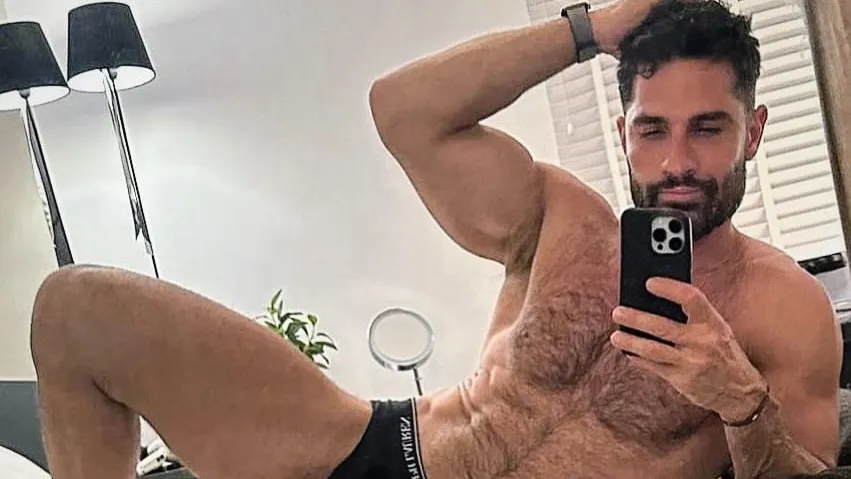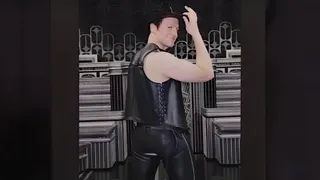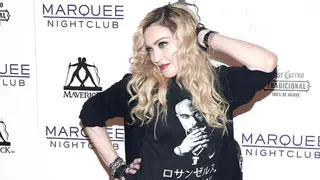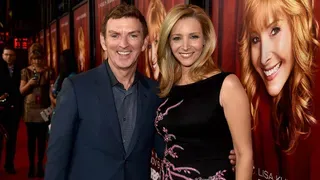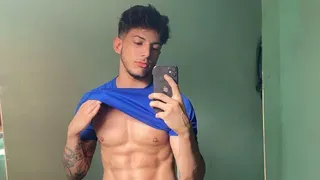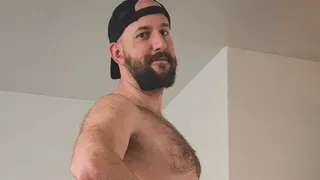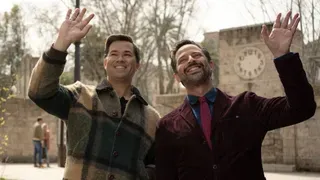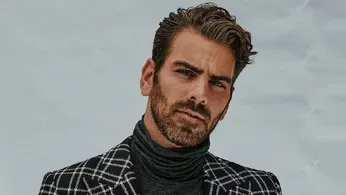
May 17
Nyle DiMarco Captures Student Revolt in AppleTV+'s Doc 'Deaf President Now!'
Kilian Melloy READ TIME: 7 MIN.
To ask if you've heard of Gallaudet University might be an inadvertent pun, since it's an institute of higher learning exclusively for the deaf. Founded in 1864, the federally-chartered university is dedicated to the Deaf community. Shockingly, it wasn't until the late 1980s – 124 years after the school's founding – that Gallaudet University had a Deaf president; the prevailing biases of the past prevented that from happening until a student revolt, dubbed Deaf President Now!, changed the way America thinks about the Deaf community.
To ask if you've heard of Nyle DiMarco, on the other hand, would be to ensure that the model, actor, reality TV star, and filmmaker is on your radar. A winner of both "America's Top Model" and "Dancing with the Stars," as well as an alumnus of Gallaudet with a degree in mathematics, DiMarco has two executive producer credits to his name: The Netflix reality series "Deaf U," which follows a group of Gallaudet University undergrads, and the Oscar-nominated short film "Audible," about a Deaf football team striving for athletic glory.
Now, with his first feature documentary – titled "Deaf President Now!" after the protest – DiMarco achieves a fresh level of filmmaking. The doc examines how Gallaudet was Ground Zero for one of the most intriguing and illuminating equality struggles of modern times. In 1988, with university president Jerry C. Lee stepping down, the Board of Trustees considered three candidates to replace him. Two were Deaf: The Dean of the university's College of Arts and Sciences, Irving King Jordan, and Harvey Corson, whose qualifications included having served the American School for the Deaf as superintendent.
The board went with the third candidate, a hearing person named Elisabeth Zinser, who had served the U. of North Carolina at Greensboro as the Vice Chancellor of Academic Affairs. Legend has it that the board's reasoning – infuriating to a student body that had long been unhappy with a lack of representation in the school's administration – was summarized by chair Jane Bassett Spilman, who allegedly told a group of student protestors, "Deaf people cannot function in a hearing world."
Watch the trailer to "Deaf President Now!"
DiMarco co-directs "Deaf President Now!" with Davis Guggenheim ("An Inconvenient Truth") that is airing on Apple TV+. The doc includes new interviews with three of the leaders of the students: Jerry Covell, who was, more or less, the self-appointed leader of the protests; Greg Hlibok, who was chosen to be the go-between for communication with the school's administration; and Bridgitte Bourne-Firl, who stepped up to try to keep things from spinning out of control. Their recollections, and those of others who were there (including Jordan), are interspersed with archival footage and well-produced re-creations of key moments from the dramatic story.
Over the course of that transformational week, young people found their voices and discovered capabilities that surprised even them; the reserved Hlibok became a forceful speaker unafraid to take on doubters on national television, while American society saw, perhaps for the first time, that being Deaf does not automatically mean someone is also dumb.
The actions taken by the Deaf President Now! protestors – locking the gates to the university shut, taking a firm and unyielding stance – prompted worries that Congress might cut funding to the school. Today, that would be the least of the potential ramifications; arrests and deportations of international students would be a given. Back then, in an era of greater freedom around political speech, those actions won students the right to be heard – and, eventually, to call one of their own their university's president.
EDGE interviewed DiMarco – who describes himself as "sexually fluid" – to learn more about the protests, his career trajectory, and what Deaf people in decades past had to endure from a hearing world... namely, a set of prejudices and assumptions that will sound all too familiar to queer people, Deaf and hearing alike.
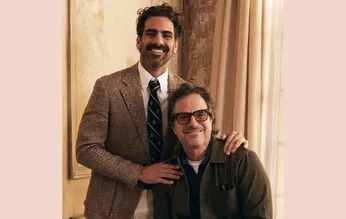
Source: IMDbPro
EDGE: Can you tell readers a little bit about what's meant by capital-D Deaf culture?
Nyle DiMarco: Capital-D Deaf [refers to] someone who's proud to be Deaf. Back then, we used to explain it as "culturally deaf," but I think that definition has shifted quite a bit. I think now it centers now more around the pride that you have in that identity,
EDGE: What was your introduction to the story of the student protests at Gallaudet University? Is it something you learned about as campus lore when you were an undergrad?
Nyle DiMarco: I'm incredibly fortunate that I'm fourth generation in an entirely Deaf family. My brothers, parents, grandparents – even my great grandparents, who immigrated from Italy – are all Deaf. I remember when I was about seven years old, my mom sat me and my brothers down to talk about the protests that happened just one short year before I was born. I remember being shocked that there was a Deaf university that had only ever had hearing presidents – at seven years old, that just didn't make sense to me.
I'm very, very grateful to our community and to the Deaf families who have passed the story down generation to generation through stories told by hand. This is something that we're really excited to codify into history, and also reinvigorate, as so many people have forgotten it.
EDGE: What was it about that moment in particular that made everyone stand up and say, "After 124 years, enough! It's time for a deaf president!"?
Nyle DiMarco: I think there were obviously so many things, but for many, many years, Deaf people had just sort of accepted it, and when you're passive long enough, it does really become your mindset. But I think in that moment, we realized that we could take back so much of our power and break the cycle that our community had been living in.
EDGE: Do you feel that there's a similarity between the biases you've encountered as someone who is Deaf and someone who is queer?
Nyle DiMarco: I think there are many parallels that you could draw. The queer community is very similar to the deaf and disabled community in terms of how society wants to "fix" both of them. I think that's something that both of our communities can relate to, but I've never wanted to be straight, the same way I've never met Deaf people who wanted to function as a hearing person.
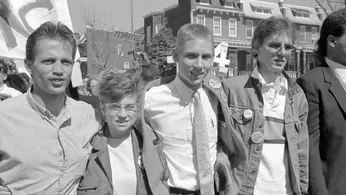
Source: IMDbPro
EDGE: How do you deal with those prejudices when you encounter them in your everyday life?
Nyle DiMarco: I think that I deal with it honestly as much as possible, with grace. If I was never proud of who I am as a Deaf person, I think I would experience a lot of internal struggle, a lot of mixed emotions, and probably quite a bit of depression.
EDGE: You started as a model, and you've had experience in various aspects of the entertainment industry. How did you get into filmmaking?
Nyle DiMarco: Around the time I started modeling, I had done a little bit of acting work. I started meeting with writers and directors and producers, many of whom were fans, who were all hearing and were interested in finding a way to work together.
That was 10 years ago, and at the time there literally were no deaf producers, no deaf writers, certainly no directors. We always ended up meeting the same roadblock: How do you write an authentic role about something that you don't know? I started to see this gap in the industry that I knew was something I would have to fix if I didn't want to wait for the roles to pop up. Being somebody that is not interested in waiting for those things, I was quick to form my own production company with the goal of empowering Deaf and disabled stories and their writers. We wanted to start by putting Deaf people behind the camera so they could create things authentically.
EDGE: How did you and your co-director, Davis Guggenheim, divide the work?
Nyle DiMarco: We were in a 50-50 partnership in creating this film. In the early discussions, I told Davis, "I want Deaf people watching it to say, 'That's our movie.'" And I wanted to do right by the story as much as possible. Not having direct directorial experience, I wasn't sure what would work and what wouldn't in terms of things like Deaf POV, or visual "noise," or the reenactments that we placed strategically throughout the film.
Davis and I would get together and play with what might work depending on the various perspectives, whether hearing or Deaf. A big part of it was trial and error, and when we found something that worked, it really worked, and we loved it. We had to bring as many ideas to one another and to the drawing board [as possible] to push this film to another level. We wanted this to be a very visceral visual experience for both a Deaf audience and a hearing audience in a way that had never been done before.
"Deaf President Now!" premieres on Apple TV+ on May 16.
Kilian Melloy serves as EDGE Media Network's Associate Arts Editor and Staff Contributor. His professional memberships include the National Lesbian & Gay Journalists Association, the Boston Online Film Critics Association, The Gay and Lesbian Entertainment Critics Association, and the Boston Theater Critics Association's Elliot Norton Awards Committee.
